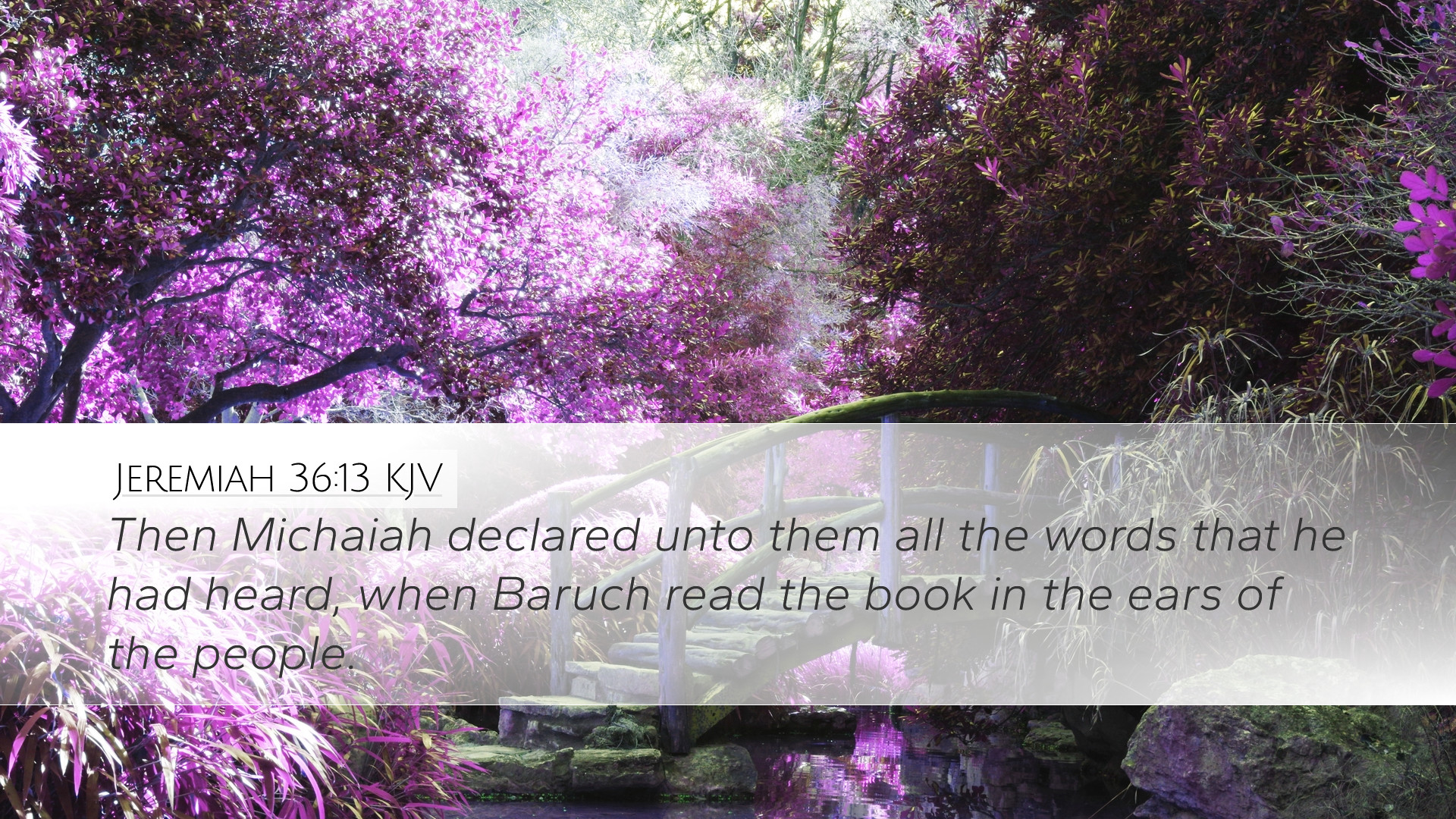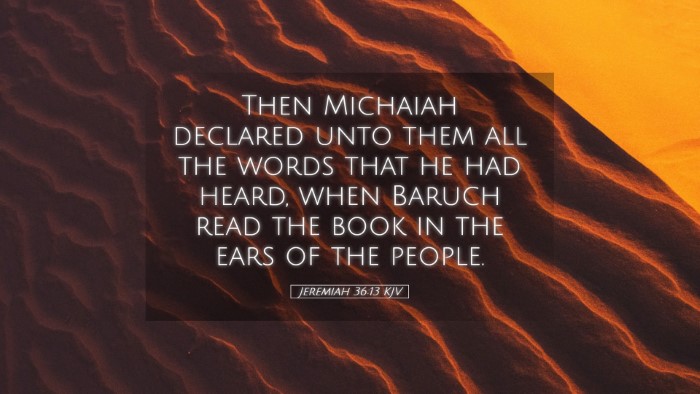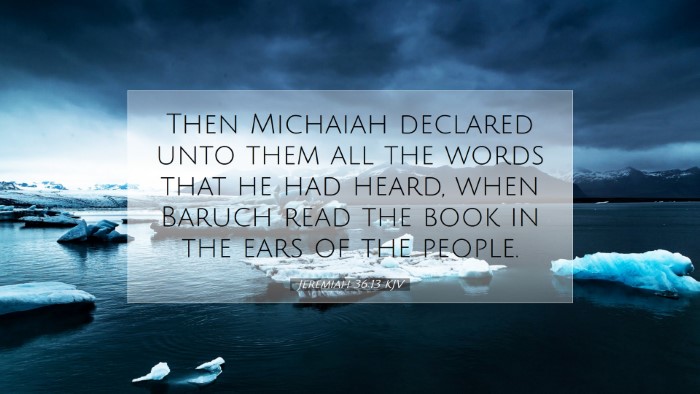Commentary on Jeremiah 36:13
Jeremiah 36:13 mentions the significant moment when the prophet Jeremiah's words were made known to the people through Baruch, his scribe. The verse states:
"And they went in to the king into the court, but they laid up the roll in the chamber of Elishama the scribe, and told all the words in the ears of the king."
Contextual Overview
The book of Jeremiah is a profound testament to the prophet's role in delivering God's messages during a tumultuous period for Judah. He called the nation to repentance and conveyed God's impending judgment. Jeremiah 36 captures a pivotal event where Baruch, a loyal scribe, reads Jeremiah's prophecy to the people.
Insights from Public Domain Commentaries
Matthew Henry's Commentary
Matthew Henry emphasizes the gravity of the message delivered through Baruch. He notes that the public reading of the scroll represents the official declaration of God’s judgments against Judah. Henry points out that the scroll symbolizes God’s covenant, which the people have neglected, highlighting their need for repentance.
Furthermore, Henry reflects on the people's response to the prophecies. Instead of embracing the message wholeheartedly, they often viewed it with skepticism. Henry warns that this attitude can hinder spiritual growth, emphasizing that divine truth must be received with reverence and urgency.
Albert Barnes' Notes on the Bible
Albert Barnes provides a deeper exploration of the cultural and historical context of Jeremiah's prophecies. He discusses the role of couriers in the ancient Near East, underlining how Baruch, as Jeremiah's scribe, fulfilled a vital function by making the prophet’s words accessible to those in power.
Barnes highlights that the act of taking the scroll to King Jehoiakim is critical as it shows the prophet's boldness in confronting authority. The narrative illustrates the tension between divine authority and human rulership. Barnes encourages readers to reflect on the power of scripture and the necessity of proclaiming God's word fearlessly, irrespective of political implications.
Adam Clarke's Commentary
Adam Clarke expands upon the theological implications of this passage. He argues that God's word, as delivered through Jeremiah and Baruch, serves as a double-edged sword: it brings both warning and hope. Clarke notes that the most significant aspect of the communications is not merely the words themselves, but the way they reflect God’s desire for a relationship with His people.
Clarke also emphasizes God’s persistence in His message of repentance. He illustrates how, despite the resistance from Kings and people, God seeks to redeem and restore those who turn back to Him. This emphasizes the boundless grace and mercy of God, calling for reflection among leaders and congregations on how they respond to divine truth.
Theological Themes
- The Authority of Scripture: This verse reinforces the concept that God's Word carries inherent authority and must be proclaimed faithfully.
- Repentance and Restoration: The underlying call for the nation to turn back to God is a recurring theme throughout Jeremiah.
- Human Agency in Divine Proclamation: The roles of Jeremiah and Baruch illustrate the partnership between God and His chosen instruments in delivering His messages.
Conclusion
Jeremiah 36:13 is more than a historical account; it represents a significant moment in God’s ongoing narrative with His people. As pastors, students, theologians, and scholars reflect on this verse, they are reminded of the critical importance of heeding, proclaiming, and living out the Word of God. The courage displayed by Jeremiah and Baruch serves as an inspiring example for contemporary believers to follow, emphasizing the power of scripture to challenge, transform, and ultimately bring hope to a hurting world.


